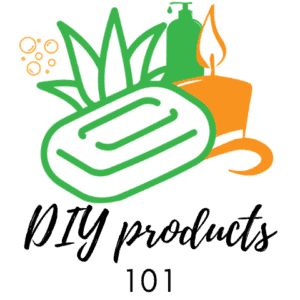Making your own soap can be risky. Homemade soaps are often made with Lye, which can be flammable. But how about soap? Would it catch fire even after it became soap? Or could you technically burn soap if you really tried?
Is soap flammable? Soap can be flammable only when it reaches its flashpoint (500-600 degrees Celsius). Soap cannot catch fire by itself. However, the ingredients within the soap can still be flammable when they reach their flashpoint. When and if soap does burn, it would not sustain a flame.
Whether you’re seeking a fun hobby, saving money, or pursuing a new business venture, our step-by-step guide makes crafting spa products enjoyable and easy, perfect for hobbies, saving money, or starting a business. Explore 126+ recipes, from soaps to lotions, with our beginner-friendly Quick Start Guide. Ditch store-bought products with unknown chemicals and embrace personalized, high-quality creations that cater to allergies and sensitivities using The Handcrafter’s Companion.
Soap is a versatile product that has been used for centuries. Some people might be under the false impression that soaps are flammable, but this ignorance could prove to be hazardous in some situations! To answer these questions, we should first look at what soap actually is made of and how different regulatory agencies worldwide classify it. For this, we would need to know what ingredients found within your average bar of soap can produce an unwanted reaction when combined with other substances like liquid fuel or alcohol. I am sure you’ve all come across forums where people claimed that Soap is Flammable! Well, today, let us dispel those myths once and for all and show why knowing about chemicals inside our everyday products really.
What is soap made of, and what are the ingredients?
The ingredients of soap are water, sodium or potassium hydroxide, and fatty acid. Different types of soaps may also contain additional components such as fragrances, colors, clay for texture, vitamins for extra benefits, etc. Some people like to add some fresh (or dried) herbs to the mix, but that’s not very common. When we look at all these ingredients separately, we all can agree that most of them are flammable. But is this still the case when you turn it into a soap?
Can Soap Catch Fire?
When you mix these ingredients, they create this chemical reaction that renders them non-flammable (it can’t catch fire!). It has a very high flash point (500-600 degrees Celsius range) – meaning there’s not much chance of combustion because they resist burning instead of melting thanks to their unique molecule structure. But don’t forget: Not ALL brands of soap are made equal…Liquid soap, for example, maybe flammable in some cases (depending on the ingredients and external factors), but even if it does catch fire, it cannot sustain it, so when it comes to the ingredients, soap should not catch fire by itself.
Also, what does it really mean when a product is “flammable”? It means that it will easily catch fire from open flame, sparks, or heat (such as from cigarettes). So when it comes to soap, it never can be flammable. However, this does not mean it cannot catch fire. If you want to burn your soap, you can technically “burn” it, but it will most likely melt it into a blob before it starts burning.
Can you burn soap? If so, what happens if you do?
Well, we did touch upon that shortly earlier, but when does this happen, and how? Also, what really happens if you burn it?
As mentioned earlier, you can technically burn soap; however, this is only when and IF (that’s a big IF) you get the individual chemicals within the soap to reach their “flashpoint.” However, in most cases, to reach that point, you’d need to try really hard. Or, even worse, if your soap does somehow catch fire, this means you most likely have much bigger problems to worry about. Hint: Remember the flashpoint of soap?
But let’s just say you really want to burn this thing, and your curiosity got the better of you. What would really happen?
What really happens when you burn soap? When lit, the soapy concoction will give off black smoke and create soot. As it breaks down into carbon monoxide (CO) or carbon dioxide (CO2), hydrogen peroxide can form as a byproduct.
Soap can burn you, but not in the same way.
Soap may burn you by irritating your skin upon usage. But I searched on the internet to see if there were any accidents where people got burned because of burning soap. But I did not find any, nor have I ever heard of anyone getting burned by a burning soap because nobody ever burns soap at the end of the day.
Getting burned (or skin irritation) mostly happens due to the following reasons:
- The Sodium Hydroxide (Lye) within the soap was not neutralized when making the soap.
- The measurements were incorrect, and this has lead to incomplete saponification.
- The lack of Glycerin within the soap can be another cause. This usually happens with commercial soaps as they tend to remove the Glycerin to use it on creams.
Conclusion
Soap can only be flammable when it reaches its Flashpoint. This means that if you have a soap with a very low flashpoint, like some liquid soap that have flashpoint between 46 – 57 Celsius. This means that it’s more likely to burn. However, the chance of catching on fire by accident is nearly impossible.
